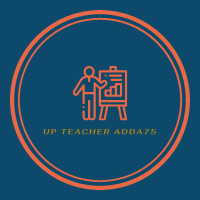STUDENT SECTION
This student section option provides three option to all the student who seeks help in there studies
1) LEARNING MATERIALS
2) ACTIVITY BASED LEARNING
3)LEARNING GAMES
LEARNING MATERIALS
Learning materials are resources that are used to support teaching and learning. They can take many different forms and can be designed for a variety of subjects, levels, and learning styles. Here are some examples of learning materials:
Textbooks: Textbooks are the most common type of learning material. They provide a comprehensive overview of a subject, and they are typically organized into chapters or units that cover specific topics.
Workbooks: Workbooks are designed to accompany textbooks and provide students with additional practice and reinforcement of the material covered in the textbook. They often include exercises, quizzes, and other activities that help students master the material.
Online Resources: The internet provides access to a wealth of learning materials, including websites, videos, podcasts, and interactive simulations. Online resources can be used to supplement classroom instruction or as stand-alone learning tools.
Audiovisual Materials: Audiovisual materials include videos, audio recordings, and multimedia presentations. They are often used to engage students and provide a more interactive and dynamic learning experience.
Manipulatives: Manipulatives are physical objects that can be used to teach abstract concepts, such as math or science. They can include things like blocks, puzzles, and models, and they are often used in hands-on activities and experiments.
Games: Educational games can be used to teach a variety of skills, including critical thinking, problem-solving, and teamwork. They are often designed to be fun and engaging, making learning more enjoyable and effective.
Simulations: Simulations are computer programs or models that recreate real-world situations or processes. They are often used in science and social studies classes to help students understand complex concepts and systems.
These are just a few examples of the many different types of learning materials that are available. Effective learning materials are carefully selected and designed to meet the needs of students and support their learning goals.
ACTIVITY BASED LEARNING
Activity-based learning is an instructional approach that emphasizes hands-on, experiential learning through various activities and tasks. It involves engaging students in the learning process through active participation, problem-solving, and critical thinking. In activity-based learning, students are encouraged to take an active role in their own learning, rather than simply receiving information from a teacher.
Here are some examples of activities that can be used in activity-based learning:
Role-playing: Students can act out scenarios related to the topic being studied, which can help them understand real-world situations and develop problem-solving skills.
Group Projects: Collaborative group projects encourage students to work together and use their skills to achieve a common goal.
Hands-on experiments: Science experiments and other hands-on activities can help students understand scientific concepts and principles through direct experience.
Field Trips: Visiting museums, historical sites, and other places related to the topic being studied can provide students with a deeper understanding of the subject matter.
Games: Educational games can be used to teach a variety of skills, including critical thinking, problem-solving, and teamwork. They are often designed to be fun and engaging, making learning more enjoyable and effective.
Debates: Debates encourage students to think critically and develop persuasive arguments while engaging in respectful discourse.
Project-Based Learning: In project-based learning, students work on long-term projects that require them to use a variety of skills and apply knowledge in creative ways.
Activity-based learning can be used in a variety of subjects and grade levels, and it has been shown to be an effective way to promote deep learning and long-term retention of knowledge. It also helps to develop important skills such as critical thinking, problem-solving, communication, and collaboration.
LEARNING GAMES
Learning games are games that are designed to teach or reinforce a specific concept or skill, typically in an educational context. These games can be played by students of all ages and can cover a wide range of subjects, including math, science, language arts, social studies, and more.
Learning games can take many different forms, including board games, card games, video games, mobile apps, and online activities. They are often interactive and engaging, using a combination of fun and challenge to keep students motivated and interested in the learning process. We will provide some learning games to student to engage in studies.

कोई टिप्पणी नहीं:
एक टिप्पणी भेजें
Leave your comment below